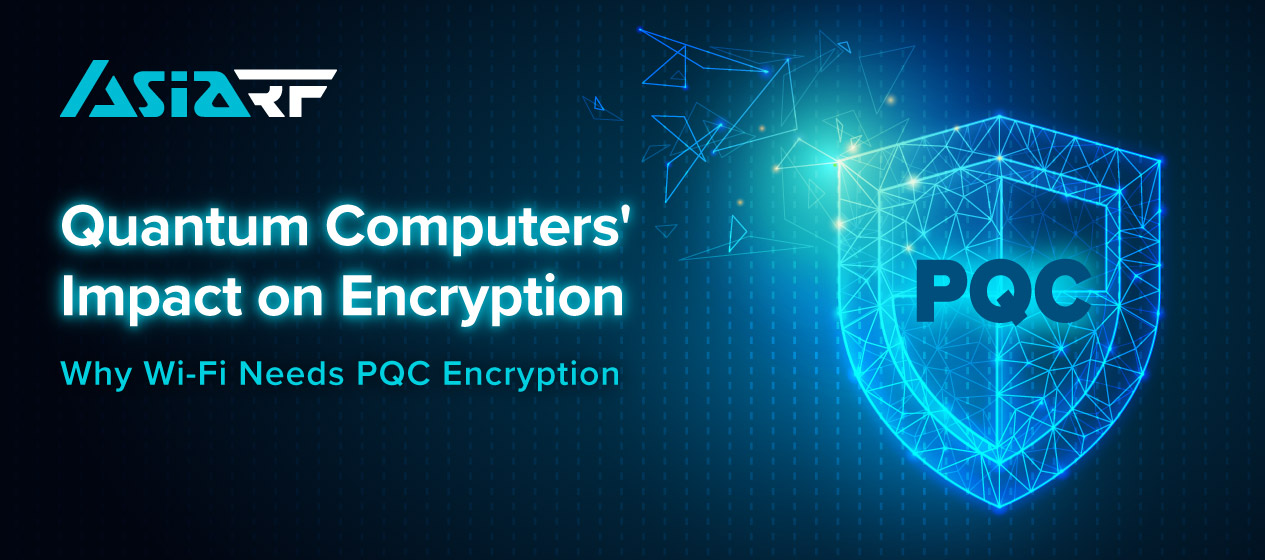Subscribe to receive
the up-to-date news and
stay informed of the latest developments.

The Impact of Quantum Computers on Traditional Encryption: Why Wi-Fi Technology Needs PQC Encryption
With the rapid advancement of quantum computing, traditional encryption standards are facing significant challenges. Quantum computers possess immense computational power, enabling them to break conventional encryption techniques in a fraction of the time. This poses a serious risk to many areas dependent on data security, including Wi-Fi communications. To protect future data transmissions, Wi-Fi technology urgently requires the implementation of Post-Quantum Cryptography (PQC) to address this emerging threat.
How Quantum Computing Threatens Existing Encryption Standards
- Weaknesses of Current Encryption Methods
Currently, Wi-Fi encryption standards such as WPA2 and WPA3 rely on encryption algorithms like AES and RSA to secure data transmissions. These algorithms are based on the complexity of certain mathematical problems that traditional computers struggle to solve. However, quantum computers can leverage quantum bits’ parallel processing capabilities to crack these encryption methods swiftly. In particular, Shor’s algorithm can break RSA and ECC (Elliptic Curve Cryptography) methods, which rely on integer factorization and discrete logarithms, respectively. This exposes a critical vulnerability in today’s encryption protocols. - Long-Term Risks to Data Security
While quantum computers are not yet fully developed, the rapid progress of quantum technology means that, in the future, quantum computers could be powerful enough to crack the encrypted data we rely on today. Once this threshold is crossed, sensitive information transmitted over Wi-Fi networks—such as financial transactions and personal data—could be compromised. This is an urgent concern for both enterprises and individual users, particularly as Wi-Fi networks are used to transmit more sensitive and personal data.
PQC Encryption: Providing Quantum Resistance for Wi-Fi Technology
To address the threat of quantum computing, Post-Quantum Cryptography (PQC) has emerged as a new encryption solution. PQC algorithms are based on mathematical problems that remain secure even in the presence of quantum computing, such as lattice-based cryptography and multivariate equations. These new algorithms not only defend against quantum attacks but also provide additional security in today’s non-quantum computing environment.
- Enhanced Security for Wi-Fi Communications
PQC can strengthen existing Wi-Fi encryption protocols (such as WPA3), ensuring that even if quantum attacks become a reality, data transmissions remain secure. This means that Wi-Fi users will continue to have secure and reliable network connections even in the quantum era. - Protecting IoT Device Communications
As more IoT devices connect to Wi-Fi networks, the need for robust security measures grows. PQC encryption can safeguard these devices’ communications from being compromised by attackers utilizing quantum computing capabilities, thereby ensuring the security of the entire IoT ecosystem. - Mitigating Future Data Decryption Risks
It’s essential to consider not only current threats but also future risks posed by quantum computing. PQC can protect encrypted data transmitted today, ensuring that even when quantum computers are fully operational, the data remains secure. This is crucial for industries that require long-term data storage, such as healthcare and finance.
Conclusion: The Future of Wi-Fi and PQC Encryption
As quantum computing technology evolves, Wi-Fi technology will face new challenges. Traditional encryption methods will no longer suffice, and the adoption of Post-Quantum Cryptography (PQC) will be essential to secure future data transmissions. At AsiaRF, we are committed to integrating PQC encryption into our Wi-Fi HaLow and Wi-Fi 7 solutions, ensuring robust security for future-proof data transmission and keeping your network safe from the quantum threat.
CONTACT OUR SALES
We're excited to discuss how we can collaborate.









